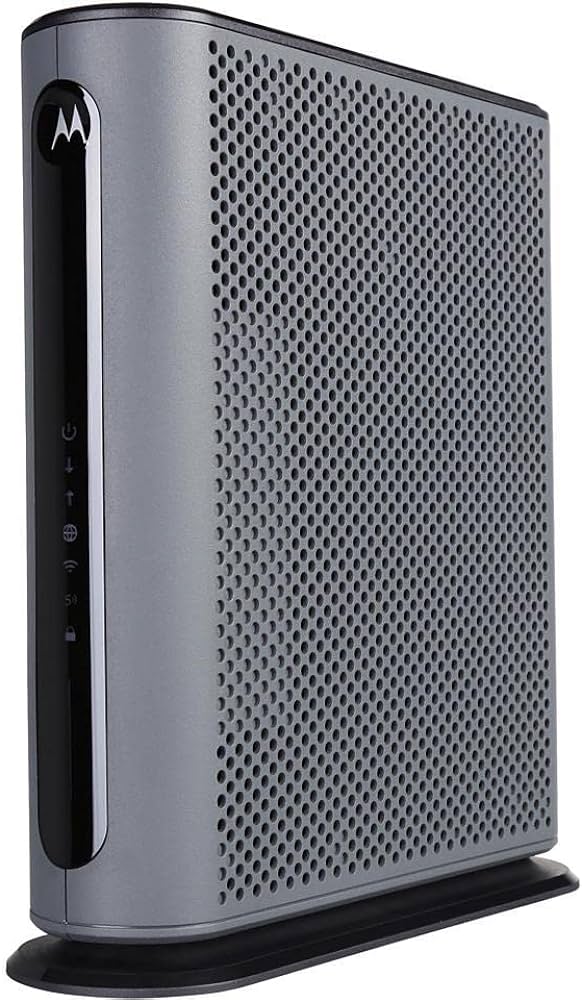Spectrum IPv6 DNS servers are available for users to configure and use on their devices. Spectrum offers IPv6 DNS servers that users can configure on their devices for enhanced internet connectivity and performance.
By using these DNS servers, users can experience improved website loading speeds, reduced latency, and better overall browsing experience. IPv6 DNS servers provided by Spectrum ensure efficient and secure communication between devices and websites, allowing users to access online content quickly and reliably.
Configuring Spectrum IPv6 DNS servers on your device is a simple process that can be done in just a few steps.
How Spectrum Ipv6 Dns Servers Can Improve Your Internet Speed
Are you tired of slow internet speeds and constant buffering while streaming your favorite shows or movies? Look no further than Spectrum IPv6 DNS servers. These servers have the power to dramatically improve your internet speed, giving you a seamless browsing and streaming experience. In this article, we will delve into an overview of Spectrum IPv6 DNS servers, understand their role in Internet speed, and explore the benefits of upgrading to these servers.
Overview of Spectrum IPv6 DNS Servers
Firstly, let’s take a closer look at what Spectrum IPv6 DNS servers are all about. DNS stands for Domain Name System, which is responsible for translating human-friendly domain names (like www.example.com) into IP addresses (like 192.0.2.1) that computers can understand. Spectrum IPv6 DNS servers provide this translation service, allowing you to access websites and online content seamlessly.
Understanding the Role of DNS Servers in Internet Speed
Now that we know what DNS servers are, let’s understand their impact on internet speed. When you enter a web address into your browser, your device sends a request to a DNS server to resolve the IP address. This step happens behind the scenes and is crucial for establishing a connection with the desired website or service. Fast and efficient DNS servers, such as Spectrum IPv6 DNS servers, can significantly speed up this process and reduce latency, leading to improved internet speed.
The Benefits of Upgrading to Spectrum IPv6 DNS Servers
Upgrading to Spectrum IPv6 DNS servers comes with a wide range of benefits. Here are some of the key advantages:
- Improved Internet Speed: Spectrum IPv6 DNS servers are optimized for speed, reducing the time it takes for your device to resolve domain names. This, in turn, leads to faster website loading times and a smoother browsing experience.
- Enhanced Security: Spectrum IPv6 DNS servers come equipped with built-in security features that protect you from phishing attempts, malware, and other online threats. This adds an extra layer of security to your internet connection.
- Better Reliability: By upgrading to Spectrum IPv6 DNS servers, you can enjoy improved reliability and uptime. These servers are designed to handle high volumes of traffic and provide a consistent and stable connection.
- Seamless Streaming and Gaming: Slow internet speeds can ruin your streaming or gaming experience, causing buffering or lag. With Spectrum IPv6 DNS servers, you can bid farewell to these issues and enjoy uninterrupted entertainment and gaming sessions.
So, if you’re looking to enhance your internet speed, boost security, and enjoy seamless browsing and streaming, upgrading to Spectrum IPv6 DNS servers is a wise choice. Experience the difference yourself and say goodbye to slow internet once and for all!
How To Set Up Spectrum Ipv6 Dns Servers
Setting up Spectrum IPv6 DNS servers can provide faster and more secure internet access for your network. By configuring the right DNS server, you can improve your browsing speed and protect your network from potential threats. In this step-by-step guide, we will walk you through the process of setting up Spectrum IPv6 DNS servers, ensuring you have a smooth and hassle-free experience.
Step-by-Step Guide to Configuring Spectrum IPv6 DNS Servers
Follow these simple steps to configure Spectrum IPv6 DNS servers:
- Access your network settings by logging in to your Spectrum router. Refer to the user manual or contact your internet service provider if you need assistance in accessing your router settings.
- Once you are in your router settings page, locate the “DNS” or “Domain Name System” settings. This is where you can specify the DNS servers for your network.
- Choose the option to “Specify DNS servers manually” or “Use custom DNS servers”. This will enable you to input the IPv6 addresses of the Spectrum DNS servers.
- Refer to the table below to find the appropriate IPv6 addresses for the Spectrum DNS servers:
| Spectrum DNS Server | IPv6 Address |
|---|---|
| Spectrum Primary DNS Server | 2001:558:feed::1 |
| Spectrum Secondary DNS Server | 2001:558:feed::2 |
- Enter the appropriate IPv6 addresses in the provided fields for the primary and secondary DNS servers. Make sure to input the addresses accurately to ensure proper functionality.
- Save your settings and exit the router configuration page. Your network will now be using the Spectrum IPv6 DNS servers.
By completing these steps, you have successfully configured the Spectrum IPv6 DNS servers for your network. Enjoy faster browsing speeds and enhanced security.
Choosing the Right Spectrum IPv6 DNS Server for Your Network
When selecting a Spectrum IPv6 DNS server for your network, it is important to consider the following factors:
- Location: Choose a DNS server that is geographically close to your network for optimal performance.
- Reliability: Look for DNS servers that have a proven track record of high uptime and minimal downtime.
- Speed: Consider DNS servers that provide fast response times, ensuring a smooth browsing experience.
By taking these factors into account, you can select the right Spectrum IPv6 DNS server that meets the specific needs of your network.
Troubleshooting Common Issues When Setting Up Spectrum IPv6 DNS Servers
While setting up Spectrum IPv6 DNS servers is generally a straightforward process, you may encounter some common issues. Here are a few troubleshooting steps to help you overcome these challenges:
- Double-check the accuracy of the IPv6 addresses you entered for the DNS servers. Even a small typo can prevent proper functionality.
- Restart your router after configuring the DNS settings to ensure the changes take effect.
- Contact your internet service provider for assistance if you continue to experience issues, as there may be specific network configurations required.
By following these troubleshooting steps and seeking support when necessary, you can quickly resolve any issues that arise during the setup process.
Setting up Spectrum IPv6 DNS servers can greatly improve your network’s performance and security. By following this step-by-step guide, choosing the right DNS server, and troubleshooting common issues, you can enjoy a faster and more reliable internet experience.
Maximizing The Performance Of Spectrum Ipv6 Dns Servers
In today’s digital age, having a reliable and lightning-fast internet connection is crucial. As more and more devices connect to the internet, the demand for faster and more efficient DNS servers has become a necessity. Spectrum IPv6 DNS servers offer an excellent solution for users looking to optimize their internet performance. In this blog post, we will explore the best practices for optimizing Spectrum IPv6 DNS servers, methods for monitoring and analyzing their performance, as well as the advanced DNS settings that can be utilized.
Best Practices for Optimizing Spectrum IPv6 DNS Servers
When it comes to optimizing the performance of Spectrum IPv6 DNS servers, following best practices is key. Here are some tips to help you get the most out of your DNS servers:
- Ensure that your router or device is set up to use Spectrum IPv6 DNS servers. This can usually be done by accessing the router’s settings page and modifying the DNS server addresses.
- Regularly update your DNS server software to the latest version provided by Spectrum. These updates often include bug fixes and performance improvements that can significantly enhance the server’s overall performance.
- Consider implementing DNS caching on your network. Caching allows frequently accessed web pages to be stored locally, reducing the need for repeated DNS lookups and improving response times.
- Optimize your network’s bandwidth by reducing unnecessary traffic. This can be achieved by blocking unwanted domains, websites, or advertisements at the DNS server level.
Monitoring and Analyzing the Performance of Spectrum IPv6 DNS Servers
Monitoring and analyzing the performance of your DNS servers is essential to ensure optimal performance. By keeping a close eye on the server metrics, you can identify and resolve any performance issues promptly. Here are some methods to consider:
- Utilize monitoring tools such as Spectrum’s DNS management interface to track important metrics like response times, query success rates, and server utilization. Analyzing these metrics will help you identify bottlenecks and optimize server performance.
- Regularly review DNS logs to track DNS requests, identify unusual patterns, and troubleshoot any potential issues.
Exploring Advanced DNS Settings with Spectrum IPv6 DNS Servers
Spectrum IPv6 DNS servers offer advanced settings that can be fine-tuned to further optimize your DNS performance. These settings allow you to customize your DNS resolution, security features, and resource allocation. Here are some of the advanced settings you can explore:
| Setting | Description |
|---|---|
| IPv6 ACL (Access Control List) | Restrict access to the DNS server, allowing only specified IPv6 addresses or ranges. This enhances security by preventing unauthorized access. |
| Response Rate Limiting | Control the rate at which an individual IP address can query the DNS server. This helps prevent DoS (Denial of Service) attacks and improves server performance under high loads. |
| Forwarding | Configure the DNS server to forward queries to other DNS resolvers if it cannot find the requested domain in its records. This can help improve DNS resolution speed. |
By exploring these advanced settings and fine-tuning them to fit your needs, you can further maximize the performance of your Spectrum IPv6 DNS servers.
In conclusion, optimizing the performance of Spectrum IPv6 DNS servers is crucial for delivering a fast and reliable internet experience. By adhering to best practices, monitoring server metrics, and exploring advanced settings, you can ensure that your DNS servers are performing at their best. Implement these strategies today and unlock the full potential of your internet connection.

Credit: www.slideshare.net
Frequently Asked Questions On Spectrum Ipv6 Dns Servers
What Are Spectrum Ipv6 Dns Servers?
Spectrum IPv6 DNS servers are the servers that translate human-readable domain names into IP addresses for websites and online services that support IPv6 connectivity.
How To Set Up Spectrum Ipv6 Dns Servers?
To set up Spectrum IPv6 DNS servers, go to your device’s network settings, select the option to manually configure DNS servers, and enter the IPv6 DNS server addresses provided by Spectrum. Save the settings and restart your device for the changes to take effect.
What Are The Benefits Of Using Spectrum Ipv6 Dns Servers?
Using Spectrum IPv6 DNS servers can improve your internet browsing experience by providing faster and more reliable DNS resolution for websites and online services that support IPv6. It can also help prevent DNS hijacking and improve overall network security.
How Do Spectrum Ipv6 Dns Servers Compare To Other Dns Servers?
Spectrum IPv6 DNS servers are specifically optimized for Spectrum internet service, providing better compatibility and performance compared to other generic DNS servers. They are designed to handle the unique requirements of Spectrum’s network infrastructure.
Conclusion
To ensure a seamless and efficient internet browsing experience, the configuration of Spectrum IPv6 DNS servers is crucial. By providing faster and more secure connections, these servers enhance the overall performance and reliability of your network. With IPv6 establishing itself as the future of internet communication, it is important to stay updated and optimize your DNS settings accordingly.
Implementing Spectrum IPv6 DNS servers is a simple yet effective way to harness the full potential of your internet connection. So, why wait? Get started today and enjoy a smooth online experience like never before.


